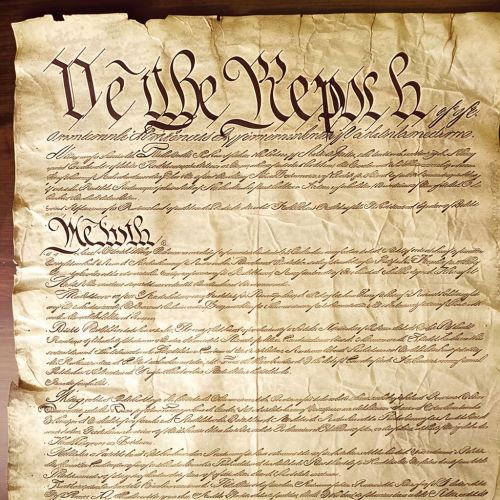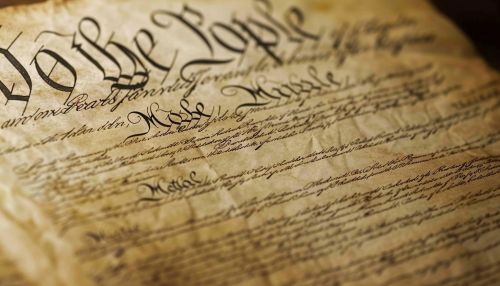Fourteenth Amendment to the United States Constitution
Introduction
The Fourteenth Amendment to the United States Constitution is one of the most significant amendments in the history of the United States. Ratified on July 9, 1868, as one of the Reconstruction Amendments, it addresses citizenship rights and equal protection under the law. Its broad language and profound implications have made it a cornerstone of civil rights jurisprudence in the United States.
Historical Context
The Fourteenth Amendment was adopted in the aftermath of the Civil War, during a period known as Reconstruction. The primary aim was to address issues related to former slaves and to ensure that all citizens, regardless of race, were granted equal protection under the law. This period saw significant legislative efforts to integrate formerly enslaved people into American society and to redefine the nation's legal and social landscape.
Text of the Amendment
The Fourteenth Amendment consists of five sections:
Section 1: Citizenship and Equal Protection
"All persons born or naturalized in the United States, and subject to the jurisdiction thereof, are citizens of the United States and of the State wherein they reside. No State shall make or enforce any law which shall abridge the privileges or immunities of citizens of the United States; nor shall any State deprive any person of life, liberty, or property, without due process of law; nor deny to any person within its jurisdiction the equal protection of the laws."
Section 2: Apportionment of Representatives
"Representatives shall be apportioned among the several States according to their respective numbers, counting the whole number of persons in each State, excluding Indians not taxed. But when the right to vote at any election for the choice of electors for President and Vice President of the United States, Representatives in Congress, the Executive and Judicial officers of a State, or the members of the Legislature thereof, is denied to any of the male inhabitants of such State, being twenty-one years of age, and citizens of the United States, or in any way abridged, except for participation in rebellion, or other crime, the basis of representation therein shall be reduced in the proportion which the number of such male citizens shall bear to the whole number of male citizens twenty-one years of age in such State."
Section 3: Disqualification from Office
"No person shall be a Senator or Representative in Congress, or elector of President and Vice President, or hold any office, civil or military, under the United States, or under any State, who, having previously taken an oath, as a member of Congress, or as an officer of the United States, or as a member of any State legislature, or as an executive or judicial officer of any State, to support the Constitution of the United States, shall have engaged in insurrection or rebellion against the same, or given aid or comfort to the enemies thereof. But Congress may by a vote of two-thirds of each House, remove such disability."
Section 4: Public Debt
"The validity of the public debt of the United States, authorized by law, including debts incurred for payment of pensions and bounties for services in suppressing insurrection or rebellion, shall not be questioned. But neither the United States nor any State shall assume or pay any debt or obligation incurred in aid of insurrection or rebellion against the United States, or any claim for the loss or emancipation of any slave; but all such debts, obligations and claims shall be held illegal and void."
Section 5: Enforcement
"The Congress shall have power to enforce, by appropriate legislation, the provisions of this article."
Citizenship Clause
The Citizenship Clause is one of the most significant components of the Fourteenth Amendment. It grants citizenship to "all persons born or naturalized in the United States," effectively overturning the Dred Scott v. Sandford decision, which had held that African Americans could not be citizens. This clause has been the foundation for numerous legal decisions and debates regarding immigration and birthright citizenship.
Privileges or Immunities Clause
The Privileges or Immunities Clause was intended to protect the rights of citizens against state infringement. However, its impact was significantly limited by the Supreme Court's decision in the Slaughter-House Cases (1873), which narrowly interpreted the clause. Despite its limited use, the clause remains a critical part of the Amendment's text and has been revisited in modern jurisprudence.
Due Process Clause
The Due Process Clause prohibits state and local governments from depriving persons of life, liberty, or property without certain steps being taken to ensure fairness. This clause has been the basis for many landmark Supreme Court cases, including those dealing with the right to privacy, such as Roe v. Wade, and the right to marry, such as Obergefell v. Hodges. The clause has both procedural and substantive components, ensuring fair procedures and protecting certain fundamental rights from government interference.
Equal Protection Clause
The Equal Protection Clause requires states to provide equal protection under the law to all people within their jurisdictions. This clause has been the foundation for many civil rights advancements, including the desegregation of schools in Brown v. Board of Education and the prohibition of gender discrimination in Reed v. Reed. The clause has been interpreted to apply to various forms of discrimination, including those based on race, gender, and sexual orientation.


Apportionment of Representatives
Section 2 of the Fourteenth Amendment addresses the apportionment of representatives in Congress. It was designed to penalize states that denied the right to vote to male citizens over the age of twenty-one, except for participation in rebellion or other crimes. This section aimed to encourage states to enfranchise African American men and was a precursor to the Fifteenth Amendment, which explicitly prohibited racial discrimination in voting.
Disqualification from Office
Section 3 of the Fourteenth Amendment disqualifies individuals who engaged in insurrection or rebellion against the United States from holding public office. This provision was aimed at former Confederates and was part of the broader effort to restructure Southern society and governance during Reconstruction. Congress retains the power to remove such disabilities by a two-thirds vote in each House.
Public Debt
Section 4 of the Fourteenth Amendment affirms the validity of the public debt of the United States while repudiating debts incurred by the Confederacy during the Civil War. This section was intended to ensure the financial stability of the nation and to prevent any future attempts to undermine the Union's financial obligations.
Enforcement Powers
Section 5 grants Congress the authority to enforce the provisions of the Fourteenth Amendment through appropriate legislation. This enforcement power has been the basis for numerous civil rights laws, including the Civil Rights Act of 1964 and the Voting Rights Act of 1965. The scope of Congress's enforcement power has been the subject of various Supreme Court decisions, which have shaped the interpretation and application of the Amendment.
Judicial Interpretation
The Fourteenth Amendment has been the subject of extensive judicial interpretation. The Supreme Court has played a crucial role in defining the scope and application of its provisions. Landmark cases such as Plessy v. Ferguson, which upheld racial segregation, and Brown v. Board of Education, which overturned Plessy and mandated desegregation, illustrate the evolving understanding of the Amendment's principles.
Modern Implications
The Fourteenth Amendment continues to be a vital part of American constitutional law. Its provisions are frequently invoked in cases involving civil rights, due process, and equal protection. Contemporary issues, such as affirmative action, same-sex marriage, and immigration, often involve interpretations of the Fourteenth Amendment.
See Also
- Reconstruction Era
- Civil Rights Act of 1964
- Voting Rights Act of 1965
- Brown v. Board of Education
- Obergefell v. Hodges
